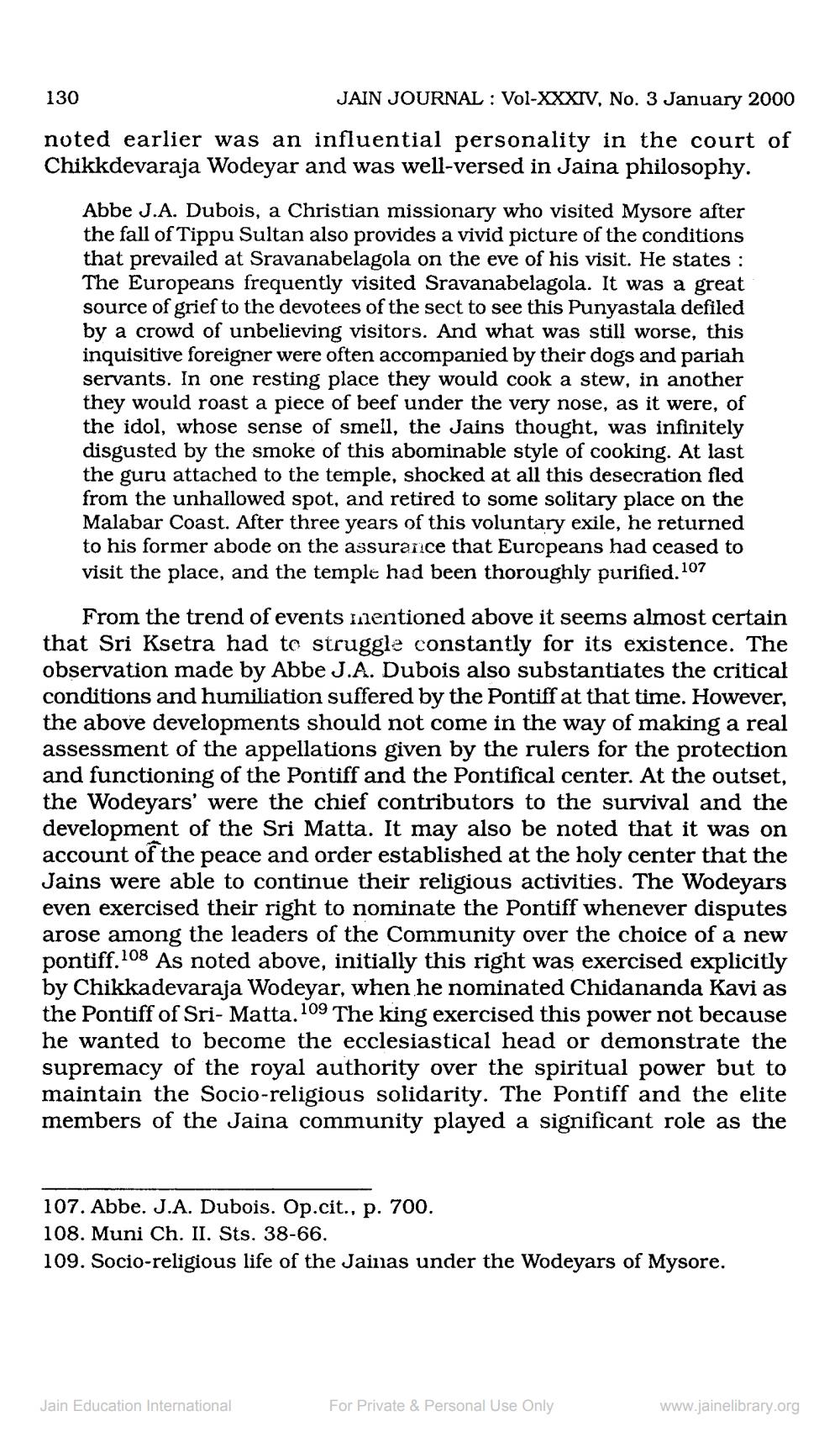________________
130
JAIN JOURNAL : Vol-XXXIV, No. 3 January 2000 noted earlier was an influential personality in the court of Chikkdevaraja Wodeyar and was well-versed in Jaina philosophy.
Abbe J.A. Dubois, a Christian missionary who visited Mysore after the fall of Tippu Sultan also provides a vivid picture of the conditions that prevailed at Sravanabelagola on the eve of his visit. He states : The Europeans frequently visited Sravanabelagola. It was a great source of grief to the devotees of the sect to see this Punyastala defiled by a crowd of unbelieving visitors. And what was still worse, this inquisitive foreigner were often accompanied by their dogs and pariah servants. In one resting place they would cook a stew, in another they would roast a piece of beef under the very nose, as it were, of the idol, whose sense of smell, the Jains thought, was infinitely disgusted by the smoke of this abominable style of cooking. At last the guru attached to the temple, shocked at all this desecration fled from the unhallowed spot, and retired to some solitary place on the Malabar Coast. After three years of this voluntary exile, he returned to his former abode on the assurance that Europeans had ceased to visit the place, and the temple had been thoroughly purified. 107
From the trend of events mentioned above it seems almost certain that Sri Ksetra had to struggle constantly for its existence. The
servation made by Abbe J.A. Dubois also substantiates the critical conditions and humiliation suffered by the Pontiff at that time. However, the above developments should not come in the way of making a real assessment of the appellations given by the rulers for the protection and functioning of the Pontiff and the Pontifical center. At the outset, the Wodeyars' were the chief contributors to the survival and the development of the Sri Matta. It may also be noted that it was on account of the peace and order established at the holy center that the Jains were able to continue their religious activities. The Wodeyars even exercised their right to nominate the Pontiff whenever disputes arose among the leaders of the Community over the choice of a new pontiff.108 As noted above, initially this right was exercised explicitly by Chikkadevaraja Wodeyar, when he nominated Chidananda Kavi as the Pontiff of Sri-Matta.109 The king exercised this power not because he wanted to become the ecclesiastical head or demonstrate the supremacy of the royal authority over the spiritual power but to maintain the Socio-religious solidarity. The Pontiff and the elite members of the Jaina community played a significant role as the
107. Abbe. J.A. Dubois. Op.cit., p. 700. 108. Muni Ch. II. Sts. 38-66. 109. Socio-religious life of the Jainas under the Wodeyars of Mysore.
Jain Education International
For Private & Personal Use Only
www.jainelibrary.org




